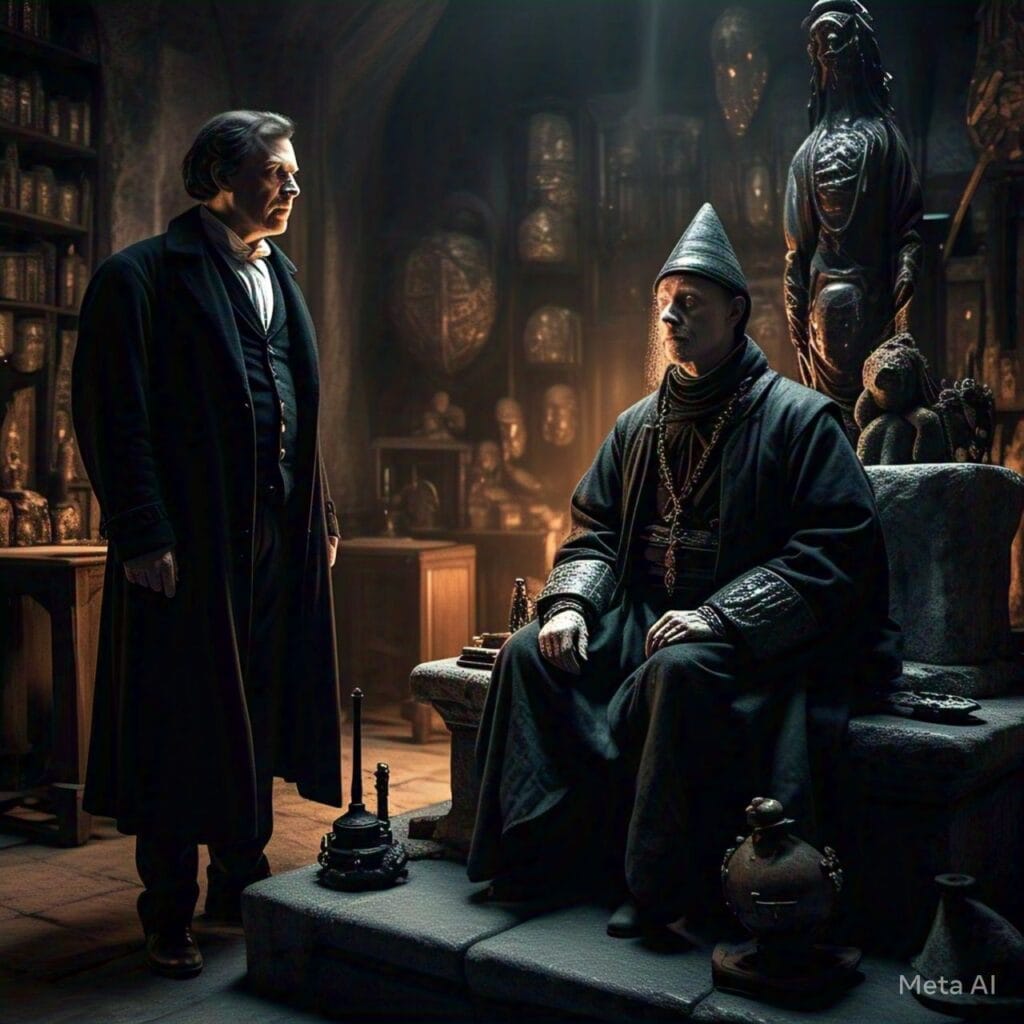Introduction to Marlowe & Dr Faustus
Christopher Marlowe was one of the most important playwrights of the English Renaissance. He lived in the late 16th century and was a major influence on William Shakespeare. His most famous play, Dr Faustus, explores Renaissance concerns with themes of knowledge, ambition, and the consequences of human desires. The play dramatizes the conflict between medieval religious values and Renaissance humanism, making it a crucial text in the study of early modern literature.
Renaissance Drama
The Renaissance (14th–17th century) was a time of great cultural and intellectual development in Europe. It was influenced by the rediscovery of ancient Greek and Roman literature. In England, Renaissance drama flourished during the Elizabethan era (1558–1603).
Before the Renaissance, medieval drama focused on religious themes, such as morality plays and miracle plays. However, Renaissance drama introduced more human-centered stories, influenced by classical works. Playwrights like Marlowe, Shakespeare, and Ben Jonson wrote about power, ambition, love, and tragedy.
Christopher Marlowe’s Life
Christopher Marlowe (1564–1593) was born in Canterbury, England. He studied at the University of Cambridge, where he developed an interest in classical literature. He became known for his powerful blank verse (unrhymed lines of iambic pentameter) and bold themes.
Marlowe’s life was mysterious. He was rumored to be involved in secret government work, possibly as a spy. He was also accused of atheism, which was a serious crime at that time. His life ended suddenly in 1593, when he was stabbed in a tavern under suspicious circumstances.
Some of Marlowe’s most famous plays include:
- Tamburlaine the Great – About an ambitious conqueror.
- The Jew of Malta – A play about greed and revenge.
- Edward II – A historical play about a weak king.
- Doctor Faustus – The tragic story of a scholar who sells his soul to the devil.
Themes of Doctor Faustus
Doctor Faustus is Marlowe’s most famous tragedy. It tells the story of Dr. John Faustus, a scholar who wants unlimited knowledge and power. He makes a deal with the devil, exchanging his soul for 24 years of magical abilities. However, he later realizes his mistake but is unable to repent, leading to his tragic downfall.

1. The Renaissance Pursuit of Knowledge
The Renaissance was an era of scientific discovery, exploration, and questioning of religious doctrines. Doctor Faustus embodies this intellectual movement through its protagonist, who seeks to go beyond conventional learning. Faustus, dissatisfied with “physic, law, and divinity”, turns to magic, declaring:
“A sound magician is a mighty god.” (Act 1, Scene 1)
This line encapsulates the Renaissance belief in human potential and self-determination, yet also hints at Faustus’ fatal pride (hubris), a trait shared by classical tragic heroes like Oedipus and Macbeth.
2. Ambition and the Tragic Hero
Faustus is driven by an insatiable ambition to transcend human limitations. Unlike medieval plays, which emphasized submission to God’s will, Marlowe’s play presents a protagonist who actively defies divine authority. Faustus’ desire for absolute power leads him to sign a contract with Lucifer, agreeing to sell his soul in exchange for “four and twenty years of power.”

This deal illustrates the Renaissance tension between Christian morality and humanist self-assertion. Despite repeated warnings—both from his conscience and from external figures like the Good Angel—Faustus refuses to repent, showcasing his tragic inability to recognize his limits.
3. The Limits of Human Achievement
Although Faustus attains supernatural abilities, his use of power remains trivial. Rather than achieving great intellectual or philosophical feats, he amuses himself with illusions, such as summoning Helen of Troy and playing tricks on the Pope. His famous exclamation—

“Was this the face that launch’d a thousand ships?
And burnt the topless towers of Ilium–
Sweet Helen, make me immortal with a kiss.”– (Act 5, Scene 1)
—demonstrates his descent from a once-ambitious scholar to a man seduced by fleeting pleasures. This failure suggests that knowledge without wisdom leads to destruction, reinforcing the play’s cautionary message.
4. The Renaissance vs. Medieval Worldview
Faustus’ struggle represents the shift from medieval religious dogma to Renaissance humanism. The medieval perspective, upheld by the Old Man in the play, urges repentance and submission to God. The Renaissance view, embodied by Faustus, values human potential and rejects limitations. However, Faustus’ fate—his final damnation—implies that the Renaissance overconfidence in human ability comes with dire consequences.
His final speech is one of the most haunting moments in Renaissance drama, as he desperately seeks redemption but finds himself doomed:
“O lente, lente currite noctis equi!” (“Run slowly, slowly, horses of the night!”) (Act 5, Scene 2)
This reference to time slipping away highlights his tragic realization that his ambition has led him to eternal damnation.
5. Good vs. Evil
Throughout the play, Faustus is torn between good and evil. The Good Angel and Evil Angel represent his internal struggle. The Good Angel urges him to repent, while the Evil Angel encourages him to enjoy his power. This battle shows the eternal conflict between morality and temptation.

6. Fate and Free Will
One of the biggest questions in Doctor Faustus is whether Faustus has free will or if he is doomed from the start. Some critics believe he could have repented and been saved, while others argue that his fate was sealed the moment he signed the contract with the devil. The play raises the question: Are humans responsible for their own downfall, or is fate unavoidable?
The Legacy of Doctor Faustus
Doctor Faustus remains one of the most powerful plays in English literature. It has been performed and adapted many times, showing that its themes are still relevant today. It warns against the dangers of unchecked ambition, moral weakness, and the misuse of knowledge.
Marlowe’s influence can also be seen in later works, including Shakespeare’s tragedies like Macbeth, which explores similar ideas of ambition and downfall.
Conclusion
Christopher Marlowe was a pioneer of Renaissance drama, and Doctor Faustus is one of his greatest works. The play serves as a cautionary tale about the limits of human ambition and the consequences of moral choices. Even today, it continues to teach valuable lessons about wisdom, humility, and the dangers of unchecked desires.
#dr faustus #dr faustus #dr faustus #dr faustus #dr faustus #dr faustus #dr faustus #dr faustus #dr faustus #dr faustus #dr faustus #dr faustus #dr faustus #dr faustus #dr faustus
Read More
Classical Theatre and Classical Drama
Plot Construction in Pride and Prejudice
Introduction to Fiction and Non Fiction
Of Death — Francis Bacon (Text)
Of Truth Critical Analysis by Sir Francis Bacon
Of Truth by Francis Bacon Summary
Visit Us on our Facebook Page:


